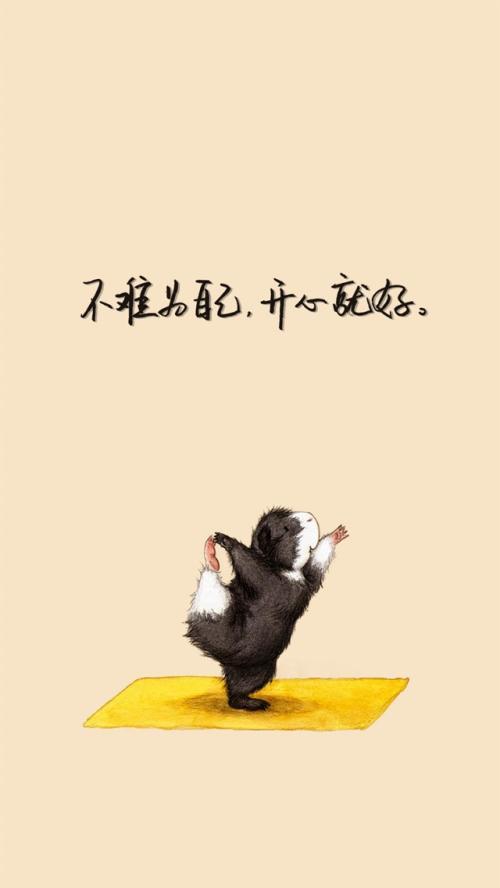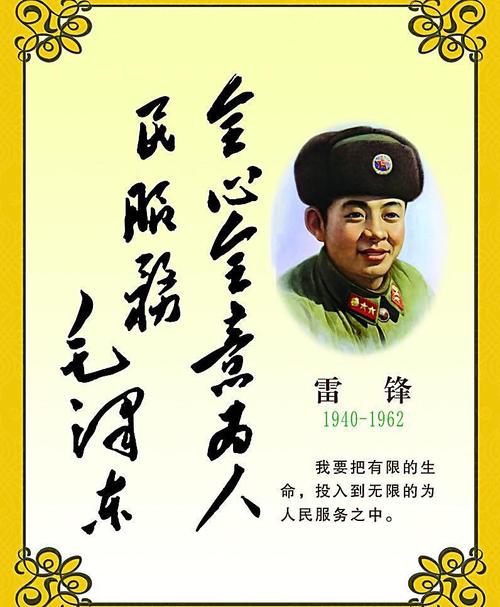
莫言诺贝尔文学奖致辞英文演讲稿
以下这篇演讲稿是中国当代著名作家莫言获得诺贝尔文学奖时在
瑞典学院发表的领奖演讲《讲故事的人》(storyteller),莫言在这次
演讲中追忆了自己的母亲,回顾了文学创作之路,并与听众分享了三个
意味深长的“故事”,讲述了自己如何成为一个用笔来讲故事的人的过
程。莫言表示,自己今后还要继续讲自己的故事。
DistinguishedmembersoftheSwedishAcademy,Ladiesand
Gentlemen:ThroughthemediumsoftelevisionandtheInternet,Iimaginethateveryoneherehasatleastanodding
haveenmyninety-year-oldfather,aswellasmybrothers,
mysister,mywifeandmydaughter,evenmygranddaughter,
personwhoismoston
mymindatthismoment,mymother,issomeoneyouwillnever
oplehavesharedinthehonorofwinningthis
prize,everyonebuther.
尊敬的瑞典学院各位院士,女士们、先生们:通过电视或网络,我
想在座的各位,对遥远的高密东北乡,已经有了或多或少的了解。你们
也许看到了我的九十岁的老父亲,看到了我的哥哥姐姐我的妻子女儿和
我的一岁零四个月的外孙子,但是有一个此刻我最想念的人,我的母亲,
你们永远无法看到了。我获奖后,很多人分享了我的光荣,但我的母亲
却无法分享了。
ed
arwewere
forcedtomovehergravefartherawayfromthevillagein
dugup
thegrave,wesawthatthecofg
1/25
upsomeofthatsoil,asymbolicact,swhenIgraspedtheknowledgethatmy
motherhadbecomepartoftheearth,andthatwhenIspoketo
motherearth,Iwasreallyspeakingtomymother.
我母亲生于1922年,卒于1994年。她的骨灰,埋葬在村庄东边的
桃园里。去年,一条铁路要从那儿穿过,我们不得不将她的坟墓迁移到
距离村子更远的地方。掘开坟墓后,我们看到,棺木已经腐朽,母亲的骨
殖,已经与泥土混为一体。我们只好象征性地挖起一些泥土,移到新的
墓穴里。也就是从那一时刻起,我感到,我的母亲是大地的一部分,我站
在大地上的诉说,就是对母亲的诉说。
Iwasmymother'iestmemorywas
oftakingouronlyvacuumbottletothepubliccanteenfor
edbyhunger,Idroppedthebottleand
witless,Ihidallthatdayinahaystack.
Towardevening,Iheardmymothercallingmychildhoodname,
soIcrawledoutofmyhidingplace,preparedtoreceivea
herdidn'thitme,didn'teven
trubbedmyheadandheavedasigh.
我是我母亲最小的孩子。我记忆中最早的一件事,是提着家里唯一
的一把热水壶去公共食堂打开水。因为饥饿无力,失手将热水瓶打碎,
我吓得要命,钻进草垛,一天没敢出来。傍晚的时候我听到母亲呼唤我
的乳名,我从草垛里钻出来,以为会受到打骂,但母亲没有打我也没有骂
我,只是抚摸着我的头,口中发出长长的叹息。
Mymostpainfulmemoryinvolvedgoingoutinthe
collective'
Mother,whohadboundfeet,couldnotrun;shewascaughtand
slappedsohardbythewatchman,ahulkofaman,thatshe
chmanconfiscatedthewheatwe'd
atontheground,
herlipbleeding,MotherworealookofhopelessnessI'ater,whenIencounteredthewatchman,
2/25
nowagray-hairedoldman,inthemarketplace,Motherhadto
stopmefromgoinguptoavengeher."Son,"shesaidevenly,
"themanwhohitmeandthismanarenotthesameperson."
我记忆中最痛苦的一件事,就是跟着母亲去集体的地理拣麦穗,看
守麦田的人来了,拣麦穗的人纷纷逃跑,我母亲是小脚,跑不快,被捉住,
那个身材高大的看守人煽了她一个耳光,她摇晃着身体跌倒在地,看守
人没收了我们拣到的麦穗,吹着口哨扬长而去。我母亲嘴角流血,坐在
地上,脸上那种绝望的神情深我终生难忘。多年之后,当那个看守麦田
的人成为一个白发苍苍的老人,在集市上与我相逢,我冲上去想找他报
仇,母亲拉住了我,平静的对我说:“儿子,那个打我的人,与这个老人,
并不是一个人。”
MyclearestmemoryisofaMoonFestivalday,at
noontime,oneofthorareoccasionswhenweatejiaoziat
home,gbeggarcametoourdoorwhile
wewereatthetable,andwhenItriedtondhimawaywith
halfabowlfulofdriedsweetpotatoes,hereactedangrily:
"I'manoldman,"hesaid."Youpeopleareeatingjiaozi,but
rtlesscanyoube?"I
reactedjustasangrily:"We'reluckyifweeatjiaozia
coupleoftimesayear,onesmallbowlfulapiece,barely
enoughtogetataste!Youshouldbethankfulwe'regiving
yousweetpotatoes,andifyoudon'twantthem,youcanget
thehelloutofhere!"After(dressingmedown)reprimanding
me,Motherdumpedherhalfbowlfulofjiaoziintotheold
man'remorfulmemoryinvolveshelpingMother
llcabbagesatmarket,andmeovercharginganoldvillager
onejiao–intentionallyornot,Ican'trecall–before
amehomethatafternoon,Isaw
thatMotherwascrying,dof
scoldingme,shemerelysaidsoftly,"Son,youembarrasd
yourmothertoday."
我记得最深刻的一件事是一个中秋节的中午,我们家难得的包了一
顿饺子,每人只有一碗。正当我们吃饺子时,一个乞讨的老人来到了我
3/25
们家门口,我端起半碗红薯干打发他,他却愤愤不平地说:“我是一个
老人,你们吃饺子,却让我吃红薯干。你们的心是怎么长的?”我气急败
坏的说:“我们一年也吃不了几次饺子,一人一小碗,连半饱都吃不了!
给你红薯干就不错了,你要就要,不要就滚!”母亲训斥了我,然后端起
她那半碗饺子,倒进了老人碗里。我最后悔的一件事,就是跟着母亲去
卖白菜,有意无意的多算了一位买白菜的老人一毛钱。算完钱我就去了
学校。当我放学回家时,看到很少流泪的母亲泪流满面。母亲并没有骂
我,只是轻轻的说:“儿子,你让娘丢了脸。”
MothercontractedariouslungdiawhenIwasstill
,dia,daheadlooked
especiallybleak,andIhadabadfeelingaboutthefuture,
ay,the
firstthingIdidwhenIwalkedinthedoorafteradayof
ghervoicewas
hearingher
threwmeintoapanic.I'dgolookingforherintheside
,afterarchingeverywhere
andnotfindingher,Isatdownintheyardandcriedlikea
howshefoundmewhenshewalkedintotheyard
very
unhappywithme,butIcouldnottellherwhatIwasafraid
wanyway."Son,"shesaid,"don'tworry,theremay
benojoyinmylife,butIwon'tleaveyoutilltheGodof
theUnderworldcallsme."
我十几岁时,母亲患了严重的肺病,饥饿,病痛,劳累,使我们这个家
庭陷入了困境,看不到光明和希望。我产生了一种强烈的不祥之兆,以
为母亲随时都会自己寻短见。每当我劳动归来,一进大门就高喊母亲,
听到她的回应,心中才感到一块石头落了地。如果一时听不到她的回
应,我就心惊胆战,跑到厨房和磨坊里寻找。有一次找遍了所有的房间
也没有见到母亲的身影,我便坐在了院子里大哭。这时母亲背着一捆柴
草从外面走进来。她对我的哭很不满,但我又不能对她说出我的担忧。
母亲看到我的心思,她说:“孩子你放心,尽管我活着没有一点乐趣,但
只要阎王爷不叫我,我是不会去的。”
4/25
ersoftenlaughedinmyface,and
schoolbulliessometimesbeatmeupbecauofit.I'drun
homecrying,wheremymotherwouldsay,"You'renotugly,
'vegotanoandtwoeyes,andthere'snothing
wrongwithyourarmsandlegs,sohowcouldyoubeugly?If
youhaveagoodheartandalwaysdotherightthing,whatis
considereduglybecomesbeautiful."Lateron,whenImovedto
thecity,therewereeducatedpeoplewholaughedatmebehind
myback,someeventomyface;butwhenIrecalledwhat
Motherhadsaid,Ijustcalmlyofferedmyapologies.
我生来相貌丑陋,村子里很多人当面嘲笑我,学校里有几个性格霸
蛮的同学甚至为此打我。我回家痛苦,母亲对我说:“儿子,你不丑,你
不缺鼻子不缺眼,四肢健全,丑在哪里?而且只要你心存善良,多做好事,
即便是丑也能变美。”后来我进入城市,有一些很有文化的人依然在背
后甚至当面嘲弄我的相貌,我想起了母亲的话,便心平气和地向他们道
歉。
Myilliteratemotherheldpeoplewhocouldreadinhigh袁世凯怎么死的
sopoorweoftendidnotknowwhereournext
mealwascomingfrom,yetsheneverdeniedmyrequesttobuy
rehardworking,
shehadnouforlazychildren,yetIcouldskipmychores
aslongasIhadmynoinabook.
我母亲不识字,但对识字的人十分敬重。我们家生活困难,经常吃
了上顿没下顿。但只要我对她提出买书买文具的要求,她总是会满足
我。她是个勤劳的人,讨厌懒惰的孩子,但只要是我因为看书耽误了干
活,她从来没批评过我。
Astorytelleroncecametothemarketplace,andIsneaked
unhappywithmeforforgetting
tnight,whileshewasstitchingpadded
clothesforusundertheweaklightofakeronelamp,I
couldn'tkeepfromretellingstoriesI'tenedimpatientlyatfirst,sinceinhereyesprofessional
5/25
storytellersweresmooth-talkingmeninadubiousprofession.
wlyshe
wasdraggedintomyretoldstories,andfromthatdayon,she
nevergavemechoresonmarketday,unspokenpermissiontogo
yment
forMother'skindnessandawaytodemonstratemymemory,I'd
ottake
longtofindretellingsomeoneel'sstoriesunsatisfying,
soIbeganembellishingmynarration.I'dsaythingsIknew
wouldpleaMother,evenchangedtheendingonceinawhile.
Andshewasn'ttheonlymemberofmyaudience,whichlaterincludedmyoldersisters,myaunts,evenmymaternal
mes,aftermymotherhadlistenedtoone
ofmystories,she'daskinacare-ladenvoice,almostasif
toherlf:"Whatwillyoubelikewhenyougrowup,son?
Mightyouwindupprattlingforalivingoneday?"
有一段时间,集市上来了一个说书人。我偷偷地跑去听书,忘记了
她分配给我的活儿。为此,母亲批评了我,晚上当她就着一盏小油灯为
家人赶制棉衣时,我忍不住把白天从说书人听来的故事复述给她听,起
初她有些不耐烦,因为在她心目中说书人都是油嘴滑舌,不务正业的人,
从他们嘴里冒不出好话来。但我复述的故事渐渐的吸引了她,以后每逢
集日她便不再给我排活,默许我去集上听书。为了报答母亲的恩情,也
为了向她炫耀我的记忆力,我会把白天听到的故事,绘声绘色地讲给她
听。很快的,我就不满足复述说书人讲的故事了,我在复述的过程中不
断的添油加醋,我会投我母亲所好,编造一些情节,有时候甚至改变故事
的结局。我的听众也不仅仅是我的母亲,连我的姐姐,我的婶婶,我的奶
奶都成为我的听众。我母亲在听完我的故事后,有时会忧心忡忡地,像
是对我说,又像是自言自语:“儿啊,你长大后会成为一个什么人呢?难
道要靠耍贫嘴吃饭吗?”
ivekidsarenotwell
thoughtofinourvillage,fortheycanbringtroubleto
sabitofayoung
meinthetalkativeboywhofallsafoulofvillagersinmystory"Bulls."Motherhabituallycautionedmenottotalkso
6/25
much,wantingmetobeataciturn,smoothandsteady
dIwaspossdofadangerouscombination
–remarkablespeakingskillsandthepowerfuldesirethat
itytotellstoriesbroughtherjoy,
butthatcreatedadilemmaforher.
我理解母亲的担忧,因为在村子里,一个贫嘴的孩子,是招人厌烦
的,有时候还会给自己和家庭带来麻烦。我在小说《牛》里所写的那个
因为话多被村子里厌恶的孩子,就有我童年时的影子。我母亲经常提醒
我少说话,她希望我能做一个沉默寡言、安稳大方的孩子。但在我身
上,却显露出极强的说话能力和极大的说话欲望,这无疑是极大的危险,
但我说的故事的能力,又带给了她愉悦,这使他陷入深深的矛盾之中。
Apopularsayinggoes"Itiasiertochangethecourofariverthanaperson'snature."Despitemyparents'
tirelessguidance,mynaturaldesiretotalkneverwentaway,
andthatiswhatmakesmyname–MoYan,or"don'tspeak"–
roppingoutof
elementaryschool,Iwastoosmallforheavylabor,soIbecameacattle-andsheep-herderonanearbygrassy
htofmyformerschoolmatesplayinginthe
schoolyardwhenIdrovemyanimalspastthegatealways
saddenedmeandmademeawareofhowtoughitisforanyone
–evenachild–toleavethegroup.
俗话说“江山易改、本性难移”,尽管我有父母亲的谆谆教导,但
我并没有改掉我喜欢说话的天性,这使得我的名字“莫言”,很像对自
己的讽刺。我小学未毕业即辍学,因为年幼体弱,干不了重活,只好到荒
草滩上去放牧牛羊。当我牵着牛羊从学校门前路过,看到昔日的同学在
校园里打打闹闹,我心中充满悲凉,深深地体会到一个人,哪怕是一个孩
子,离开群体后的痛苦。俗话说“江山易改、本性难移”,尽管我有父
母亲的谆谆教导,但我并没有改掉我喜欢说话的天性,这使得我的名字
“莫言”,很像对自己的讽刺。
Iturnedtheanimalslooontheriverbanktograze
beneathaskyasblueastheoceanandgrass-carpetedlandas
7/25
farastheeyecoulde–notanotherpersoninsight,no
humansounds,lby
mylfandterriblylonely;mesI
layinthegrassandwatchedcloudsfloatlazilyby,which
rtofthe
countryisknownforitstalesoffoxesintheformof
beautifulyoungwomen,andIwouldfantasizeafox-turned-
erdid
,however,afieryredfoxboundedoutofthebrush
infrontofme,scaringmylegsrightoutfromunderme.I
wasstillsittingtheretremblinglongafterthefoxhad
mesI'dcrouchdownbesidethecowsandgaze
intotheirdeepblueeyes,eyesthatcapturedmyreflection.
AttimesI'dhaveadialoguewithbirdsinthesky,mimicking
theircries,whileatothertimesI'ddivulgemyhopesand
birdsignoredme,andsodidthe
ater,afterI'dbecomeanovelist,Iwrotesome
frequentlybombardmewithcomplimentsonmyvivid
imagination,andloversofliteratureoftenaskmetodivulge
respon
isawansmile.
到了荒滩上,我把牛羊放开,让它们自己吃草。蓝天如海,草地一望
无际,周围看不到一个人影,没有人的声音,只有鸟儿在天上鸣叫。我感
到很孤独,很寂寞,心里空空荡荡。有时候,我躺在草地上,望着天上懒
洋洋地飘动着的白云,脑海里便浮现出许多莫名其妙的幻象。我们那地
方流传着许多狐狸变成美女的故事,我幻想着能有一个狐狸变成美女与
我来作伴放牛,但她始终没有出现。但有一次,一只火红色的狐狸从我
面前的草丛中跳出来时,我被吓得一屁股蹲在地上。狐狸跑没了踪影,
我还在那里颤抖。有时候我会蹲在牛的身旁,看着湛蓝的牛眼和牛眼中
的我的倒影。有时候我会模仿着鸟儿的叫声试图与天上的鸟儿对话,有
时候我会对一棵树诉说心声。但鸟儿不理我,树也不理我。许多年后,
当我成为一个小说家,当年的许多幻想,都被我写进了小说。很多人夸
8/25
我想象力丰富,有一些文学爱好者,希望我能告诉他们培养想象力的秘
诀,对此,我只能报以苦笑。
OurTaoistmasterLaozisaiditbest:"Fortunedependson
tuneishiddeninfortune."Ileftschool
asachild,oftenwenthungry,wasconstantlylonely,andhad
thoreasons,likethewriterofa
previousgeneration,ShenCongwen,Ihadanearlystarton
rienceofgoingtothe
marketplacetolistentoastorytellerwasbutonepageof
eavingschool,Iwasthrownuncomfortablyintotheworldofadults,whereIembarkedonthelong
dredyearsago,
oneofthegreatstorytellersofalltime–PuSongling–livednearwhereIgrewup,andwheremanypeople,me
included,er
Ihappenedtobe–workingthefieldswiththecollective,
inproductionteamcowshedsorstables,onmygrandparents'
heatedkang,evenonoxcartsbouncingandswayingdowntheroad,myearsfilledwithtalesofthesupernatural,
historicalromances,andstrangeandcaptivatingstories,all
tiedtothenaturalenvironmentandclanhistories,andall
ofwhichcreatedapowerfulrealityinmymind.
就像中国的先贤老子所说的那样:“福兮祸之所伏,福祸福所
倚”,我童年辍学,饱受饥饿、孤独、无书可读之苦,但我因此也像我们
的前辈作家沈从文那样,及早地开始阅读社会人生这本大书。前面所提
到的到集市上去听说数人说书,仅仅是这本大书中的一页。辍学之后,
我混迹于成人之中,开始了“用耳朵阅读”的漫长生涯。二百多年前,
我的故乡曾出了一个讲故事的伟大天才——蒲松龄,我们村里的许多
人,包括我,都是他的传人。我在集体劳动的田间地头,在生产队的牛棚
马厩,在我爷爷奶奶的热炕头上,甚至在摇摇晃晃地进行着的牛车社,聆
听了许许多多神鬼故事,历史传奇,逸闻趣事,这些故事都与当地的自然
环境,家庭历史紧密联系在一起,使我产生了强烈的现实感。
9/25
Eveninmywildestdreams,Icouldnothaveenvisioneda
daywhenallthiswouldbethestuffofmyownfiction,forI
wasjustaboywholovedstories,whowasinfatuatedwiththe
enIwas,without
adoubt,atheist,believingthatalllivingcreatureswere
endowedwithsouls.I'dstopandpaymyrespectstoa
toweringoldtree;ifIsawabird,Iwassureitcould
becomehumananytimeitwanted;andIsuspectedevery
t,
terriblefearsaccompaniedmeonmywayhomeaftermywork
pointsweretallied,soI'e,whichwas
changingatthetime,producedscratchy,squeakysongsthat
gratedontheearsofanyvillagerwhoheardme.
我做梦也想不到有朝一日这些东西会成为我的写作素材,我当时只
是一个迷恋故事的孩子,醉心地聆听着人们的讲述。那时我是一个绝对
的有神论者,我相信万物都有灵性,我见到一棵大树会肃然起敬。我看
到一只鸟会感到它随时会变化成人,我遇到一个陌生人,也会怀疑他是
一个动物变化而成。每当夜晚我从生产队的记工房回家时,无边的恐惧
便包围了我,为了壮胆,我一边奔跑一边大声歌唱。那时我正处在变声
期,嗓音嘶哑,声调难听,我的歌唱,是对我的乡亲们的一种折磨。
Ispentmyfirsttwenty-oneyearsinthatvillage,never
travelingfartherfromhomethantoQingdao,bytrain,where
Inearlygotlostamidthegiantstacksofwoodinalumber
motheraskedmewhatI'deninQingdao,I
reportedsadlythatallI'
thattriptoQingdaoplantedinmeapowerfuldesiretoleave
myvillageandetheworld.
我在故乡生活了二十一年,期间离家最远的是乘火车去了一次青
岛,还差点迷失在木材厂的巨大木材之间,以至于我母亲问我去青岛看
到了什么风景时,我沮丧地告诉她:什么都没看到,只看到了一堆堆的
木头。但也就是这次青岛之行,使我产生了想离开故乡到外边去看世界
的强烈愿望。
10/25
InFebruary1976Iwasrecruitedintothearmyandwalked
outoftheNortheastGaomiTownshipvillageIbothlovedand
hated,enteringacriticalphaofmylife,carryinginmy
backpackthefour-volumeBriefHistoryofChinamymotherhad
ganthemost
dmitthatwereitnot
forthethirty-oddyearsoftremendousdevelopmentand
progressinChinesociety,andthesubquentnational
reformandopeningofherdoorstotheoutside,Iwouldnot
beawritertoday.
1976年2月,我应征入伍,背着我母亲卖掉结婚时的首饰帮我购买
的四本《中国通史简编》,走出了高密东北乡这个既让我爱又让我恨的
地方,开始了我人生的重要时期。我必须承认,如果没有30多年来中国
社会的巨大发展与进步,如果没有改革开放,也不会有我这样一个作
家。
Inthemidstofmind-numbingmilitarylife,Iwelcomed
theideologicalemancipationandliteraryfervorofthe
nineteen-eighties,andevolvedfromaboywholistenedto
storiesandpasdthemonbywordofmouthintosomeonewho
rockyroadat
first,atimewhenIhadnotyetdiscoveredhowrichasource
ofliterarymaterialmytwodecadesofvillagelifecouldbe.
Ithoughtthatliteraturewasallaboutgoodpeopledoing
goodthings,storiesofheroicdeedsandmodelcitizens,so
thatthefewpiecesofminethatwerepublishedhadlittle
literaryvalue.
在军营的枯燥生活中,我迎来了八十年代的思想解放和文学热潮,
我从一个用耳朵聆听故事,用嘴巴讲述故事的孩子,开始尝试用笔来讲
述故事。起初的道路并不平坦,我那时并没有意识到我二十多年的农村
生活经验是文学的富矿,那时我以为文学就是写好人好事,就是写英雄
模范,所以,尽管也发表了几篇作品,但文学价值很低。
11/25
Inthefallof1984IwasacceptedintotheLiterature
DepartmentofthePLAArtAcademy,where,undertheguidance
ofmyreveredmentor,therenownedwriterXuHuaizhong,I
wroteariesofstoriesandnovellas,including:"Autumn
Floods,""DryRiver,""TheTransparentCarrot,"and"Red
Sorghum."NortheastGaomiTownshipmadeitsfirstappearance
in"AutumnFloods,"andfromthatmomenton,likeawanderingpeasantwhofindshisownpieceofland,thisliterary
aythat
inthecourofcreatingmyliterarydomain,NortheastGaomi
Township,IwasgreatlyinspiredbytheAmericannovelist
WilliamFaulknerandtheColumbianGabrielGarcaMrquez.I
hadnotreadeitherofthemextensively,butwancouraged
bythebold,unrestrainedwaytheycreatednewterritoryinwriting,andlearnedfromthemthatawritermusthavea
tyandcompromiare
idealinone'sdailylife,butinliterarycreation,supreme
lf-confidenceandtheneedtofollowone'sowninstincts
yearsIfollowedinthefootstepsof
thetwomastersbeforerealizingthatIhadtoescapetheir
influence;thisishowIcharacterizedthatdecisioninan
essay:Theywereapairofblazingfurnaces,Iwasablockof
tooclotothem,Iwoulddissolveintoa
derstanding,onewriterinfluences
anotherwhentheyenjoyaprofoundspiritualkinship,whatisoftenreferredtoas"heartsbeatinginunison."That
explainswhy,thoughIhadreadlittleoftheirwork,afew
pagesweresufficientformetocomprehendwhattheyweredoingandhowtheyweredoingit,whichledtomy
understandingofwhatIshoulddoandhowIshoulddoit.
1984年秋,我考入解放军艺术学院文学系。在我的恩师著名作家徐
怀中的启发指导下,我写出了《秋水》、《枯河》、《透明的红萝
卜》、《红高粱》等一批中短篇小说。在《秋水》这篇小说里,第一次
出现了“高密东北乡”这个字眼,从此,就如同一个四处游荡的农民有
12/25
了一片土地,我这样一个文学的流浪汉,终于有了一个可以安身立命的
场所。我必须承认,在创建我的文学领地“高密东北乡”的过程中,美
国的威廉福克纳和哥伦比亚的加西亚马尔克斯给了我重要启发。
我对他们的阅读并不认真,但他们开天辟地的豪迈精神激励了我,使我
明白了一个作家必须要有一块属于自己的地方。一个人在日常生活中
应该谦卑退让,但在文学创作中,必须颐指气使,独断专行。我追随在这
两位大师身后两年,即意识到,必须尽快地逃离他们,我在一篇文章中写
道:他们是两座灼热的火炉,而我是冰块,如果离他们太近,会被他们蒸
发掉。根据我的体会,一个作家之所以会受到某一位作家的影响,其根
本是因为影响者和被影响者灵魂深处的相似之处。正所谓“心有灵犀
一点通”。所以,尽管我没有很好地去读他们的书,但只读过几页,我就
明白了他们什么,也明白了他们是怎样干的,随即我也就明白了我
该干什么和我该怎样干。
WhatIshoulddowassimplicityitlf:Writemyown
asthatofthemarketplacestoryteller,withwhichIwassofamiliar,thewaymy
andor,Inevergaveathoughtto
audiencewhenIwastellingmystories;perhapsmyaudience
wasmadeupofpeoplelikemymother,lystorieswerenarrationsofmypersonal
experience:theboywhoreceivedawhippingin"DryRiver,"
forinstance,ortheboywhoneverspokein"TheTransparent
Carrot."Ihadactuallydonesomethingbadenoughtoreceive
awhippingfrommyfather,lly,
personalexperiencecannotbeturnedintofictionexactlyas
ithappened,nhastobefictional,ofmy
friends,"TheTransparentCarrot"ismyverybeststory;I
ansayis,"The
TransparentCarrot"ismoresymbolicandmoreprofoundly
meaningfulthananyotherstoryI'rk-skinnedboywiththesuperhumanabilitytosufferanda
13/25
superhumofallthefictional
charactersI'differentway,amongallthecharactersa
writercreates,thereisalwaysonethatstandsaboveallthe
,hesays
nothing,heleadsthewayforalltheothers,inalltheir
variety,performingfreelyontheNortheastGaomiTownship
stage.
我该干的事情其实很简单,那就是用自己的方式,讲自己的故事。
我的方式,就是我所熟知的集市说书人的方式,就是我的爷爷奶奶、村
里的老人们讲故事的方式。坦率地说,讲述的时候,我没有想到谁会是
我的听众,也许我的听众就是那些如我母亲一样的人,也许我的听众就
是我自己,我自己的故事,起初就是我的亲身经历,譬如《枯河》中那个
遭受痛打的孩子,譬如《透明的红萝卜》中那个自始至终一言不发的孩
子。我的确曾因为干过一件错事而受到过父亲的痛打,我也的确曾在桥
梁工地上为铁匠师傅拉过风箱。当然,个人的经历无论多么奇特也不可
能原封不动地写进小说,小说必须虚构,必须想象。很多朋友说《透明
的红萝卜》是我最好的小说,对此我不反驳,也不认同,但我认为《透明
的红萝卜》是我的作品中最有象征性、最意味深长的一部。那个浑身
漆黑、具有超人的忍受痛苦的能力和超人的感受能力的孩子,是我全部
小说的灵魂,尽管在后来的小说里,我写了很多的人物,但没有一个人
物,比他更贴近我的灵魂。或者可以说,一个作家所塑造的若干人物中,
总有一个领头的,这个沉默的孩子就是一个领头的,他一言不发,但却有
力地领导着形形色色的人物,在高密东北乡这个舞台上,尽情地表演。
Apersoncanexperienceonlysomuch,andonceyouhave
exhaustedyourownstories,youmusttellthestoriesof
,outofthedepthsofmymemories,like
conscriptedsoldiers,rostoriesoffamilymembers,of
fellowvillagers,andoflong-deadancestorsIlearnedof
itedexpectantlyforme
dfatherandgrandmother,my
fatherandmother,mybrothersandsisters,myauntsanduncles,mywifeandmydaughterhaveallappearedinmy
14/25
relatedresidentsofNortheastGaomiTownship
theyhaveundergone
literarymodificationtotransformthemintolarger-than-life
ofmineisthecentralcharacter
ofmylatestnovel,ouncementoftheNobel
Prizentjournalistsswarmingtoherhomewithinterview
t,shewaspatientlyaccommodating,butshe
soonhadtoescapetheirattentionsbyfleeingtoherson's
'tdenythatshewasmy
modelinwritingFrogs,tionalauntis
arrogantanddomineering,inplacesvirtuallythuggish,while
myrealauntiskindandgentle,theclassiccaringwifeand
aunt'sgoldenyearshavebeenhappy
andfulfilling;herfictionalcounterpartsuffersinsomniain
herlateyearsasaresultofspiritualtorment,andwalks
thenightslikeaspecter,teful
tomyrealauntfornotbeingangrywithmeforhowIchanged
reatlyrespectherwisdomin
comprehendingthecomplexrelationshipbetweenfictional
charactersandrealpeople.
自己的故事总是有限的,讲完了自己的故事,就必须讲他人的故
事。于是,我的亲人们的故事,我的村人们的故事,以及我从老人们口中
听到过的祖先们的故事,就像听到集合令的士兵一样,从我的记忆深处
涌出来。他们用期盼的目光看着我,等待着我去写他们。我的爷爷、奶
奶、父亲、母亲、哥哥、姐姐、姑姑、叔叔、妻子、女儿,都在我的作
品里出现过,还有很多的我们高密东北乡的乡亲,也都在我的小说里露
过面。当然,我对他们,都进行了文学化的处理,使他们超越了他们自
身,成为文学中的人物。我最新的小说《蛙》中,就出现了我姑姑的形
象。因为我获得诺贝尔奖,许多记者到她家采访,起初她还很耐心地回
答提问,但很快便不胜其烦,跑到县城里她儿子家躲起来了。姑姑确实
是我写《蛙》时的模特,但小说中的姑姑,与现实生活中的姑姑有着天
壤之别。小说中的姑姑专横跋扈,有时简直像个女匪,现实中的姑姑和
善开朗,是一个标准的贤妻良母。现实中的姑姑晚年生活幸福美满,小
15/25
说中的姑姑到了晚年却因为心灵的巨大痛苦患上了失眠症,身披黑袍,
像个幽灵一样在暗夜中游荡。我感谢姑姑的宽容,她没有因为我在小说
中把她写成那样而生气;我也十分敬佩我姑姑的明智,她正确地理解了
小说中人物与现实中人物的复杂关系。
Aftermymotherdied,inthemidstofalmostcrippling
grief,plantookshape,Iwas
burningwithsuchemotionthatIcompletedadraftofhalfa
reastsand
WideHipsIshamelesslyudmaterialassociatedwithmymother'sactualexperience,butthefictionalmother's
emotionalstateiitheratotalfabricationoracomposite
ofmanyofNortheastGaomiTownship'Iwrote
"Tothespiritofmymother"onthededicationpage,thenovelwasreallywrittenforallmotherverywhere,
evidence,perhaps,ofmyoverweeningambition,inmuchthe
samewayasIhopetomaketinyNortheastGaomiTownshipa
microcosmofChina,evenofthewholeworld.
母亲去世后,我悲痛万分,决定写一部书献给她。这就是那本《丰
乳肥臀》。因为胸有成竹,因为情感充盈,仅用了83天,我便写出了这
部长达50万字的小说的初稿。在《丰乳肥臀》这本书里,我肆无忌惮
地使用了与我母亲的亲身经历有关的素材,但书中的母亲情感方面的经
历,则是虚构或取材于高密东北乡诸多母亲的经历。在这本书的卷前语
上,我写下了“献给母亲在天之灵”的话,但这本书,实际上是献给天下
母亲的,这是我狂妄的银联闪付 野心,就像我希望把小小的“高密东北乡”写成
中国乃至世界的缩影一样。
ofmynovelsdiffersfromtheothersintermsofplotand
,suchas"TheTransparentCarrot,"
werebornindreams,whileothers,likeTheGarlicBallads
rthesourceofa
workisadreamorreallife,onlyifitisintegratedwithindividualexperiencecanitbeimbuedwithindividuality,be
16/25
populatedwithtypicalcharactersmoldedbylivelydetail,
employrichlyevocativelanguage,andboastawellcrafted
ustpointoutthatinTheGarlicBalladsI
introducedareal-lifestorytellerandsingerinoneofthe
novel'hadn'tudhisreal
name,a
recurringphenomenonwithme.I'llstartoutusingcharacters'realnamesinordertoachieveanof
intimacy,andaftertheworkisfinished,itwillemtoo
sledtopeoplewhoe
theirnamesinmynovelsgoingtomyfathertoventtheir
ysapologizesinmyplace,butthenurges
'llsay:"ThefirstntenceinRedSorghum,'Myfather,abandit's
offspring,'didn'tuptme,sowhyshouldyoubeunhappy?"
Mygrea长白山传说 testchallengescomewithwritingnovelsthatdeal
withsocialrealities,suchasTheGarlicBallads,not
becauI'mafraidofbeingopenlycriticalofthedarker
aspectsofsociety,butbecauheatedemotionsandanger
allowpoliticstosuppressliteratureandtransformanovel
berofsociety,a
novelistintitledtohisownstanceandviewpoint;but
whenheiswritinghemusttakeahumanisticstance,and
encanliteraturenotjust
originateinevents,buttranscendthem,notjustshow
concernforpoliticsbutbegreaterthanpolitics.
作家的创作过程各有特色,我每本书的构思与灵感触发也都不尽相
同。有的小说起源于梦境,譬如《透明的红萝卜》,有的小说则发端于
现实生活中发生的事件——譬如《天堂蒜薹之歌》。但无论是起源于
梦境还是发端于现实,最后都必须和个人的经验相结合,才有可能变成
一部具有鲜明个性的,用无数生动细节塑造出了典型人物的、语言丰富
多彩、结构匠心独运的文学作品。有必要特别提及的是,在《天堂蒜薹
之歌》中,我让一个真正的说书人登场,并在书中扮演了十分重要的角
色。我十分抱歉地使用了这个说书人真实姓名,当然,他在书中的所有
17/25
行为都是虚构。在我的写作中,出现过多次这样的现象,写作之初,我使
用他们的真实姓名,希望能借此获得一种亲近感,但作品完成之后,我想
为他们改换姓名时却感到已经不可能了,因此也发生过与我小说中人物
同名者找到我父亲发泄不满的事情,我父亲替我向他们道歉,但同时又
开导他们不要当真。我父亲说:“他在《红高粱》中,第一句就说‘我
父亲这个土匪种’,我都不在意你们还在意什么?”我在写作《天堂蒜
薹之歌》这类逼近社会现实的小说时,面对着的最大问题,其实不是我
敢不敢对社会上的黑暗现象进行批评,而是这燃烧的激情和愤怒会让政
治压倒文学,使这部小说变成一个社会事件的纪实报告。小说家是社会
中人,他自然有自己的立场和观点,但小说家在写作时,必须站在人的立
场上,把所有的人都当做人来写。只有这样,文学才能发端事件但超越
事件,关心政治但大于政治。
Possi高度英文 blybecauI'velivedsomuchofmylifein
difficultcircumstances,IthinkIhaveamoreprofound
hatrealcourageis,andI
hatnebulousterrain
existsintheheartsandmindsofeveryperson,terrainthat
cannotbeadequatelycharacterizedinsimpletermsofright
andwrongorgoodandbad,andthisvastterritoryiswherea
asthework
correctlyandvividlydescribesthisnebulous,massively
contradictoryterrain,itwillinevitablytranscendpolitics
ingonandon
aboutmyownworkmustbeannoying,butmylifeandworksare
inextricablylinked,soifIdon'ttalkaboutmywork,I
don'odern-daystorytellerwhohidinthe
backgroundofhiarlywork;butwiththenovelSandalwood
yworkcanbe
characterizedasariesofsoliloquies,withnoreaderin
mind;startingwiththisnovel,however,Ivisualizedmylf
standinginapublicsquarespiritedlytellingmystorytoa
aditionisaworldwidephenomenoninfiction,ime,Iwas
18/25
adiligentstudentofWesternmodernistfiction,andI
he
re,woodDeathandthe
novelsthatfollowedareinheritorsoftheChineclassical
noveltraditionbutenhancedbyWesternliterarytechniques.
Whatisknownasinnovativefictionis,forthemostpart,a
resultofthismixture,whichisnotlimitedtodomestic
traditionswithforeigntechniques,butcanincludemixing
woodDeath,for
instance,mixesfictionwithlocalopera,whilesomeofmy
earlyworkwaspartlynurturedbyfineart,music,even
acrobatics.
可能是因为我经历过长期的艰难生活,使我对人性有较为深刻的了
解。我知道真正的勇敢是什么,也明白真正的悲悯是什么。我知道,每
个人心中都有一片难用是非善恶准确定性的朦胧地带,而这片地带,正
是文学家施展才华的广阔天地。只要是准确地、生动地描写了这个充
满矛盾的朦胧地带的作品,也就必然地超越了政治并具备了优秀文学的
品质。喋喋不休地讲述自己的作品是令人厌烦的,但我的人生是与我的
作品紧密相连的,不讲作品,我感到无从下嘴,所以还得请各位原谅。在
我的早期作品中,我作为一个现代的说书人,是隐藏在文本背后的,但从
《檀香刑》这部小说开始,我终于从后台跳到了前台。如果说我早期的
作品是自言自语,目无读者,从这本书开始,我感觉到自己是站在一个广
场上,面对着许多听众,绘声绘色地讲述。这是世界小说的传统,更是中
国小说的传统。我也曾积极地向西方的现代派小说学习,也曾经玩弄过
形形色色的叙事花样,但我最终回归了传统。当然,这种梦到自己哭了 回归,不是一成
不变的回归,《檀香刑》和之后的小说,是继承了中国古典小说传统又
借鉴了西方小说技术的混合文本。小说领域的所谓创新,基本上都是这
种混合的产物。不仅仅是本国文学传统与外国小说技巧的混合,也是小
说与其他的艺术门类的混合,就像《檀香刑》是与民间戏曲的混合,就
像我早期的一些小说从美术、音乐、甚至杂技中汲取了营养一样。
Finally,Iaskyourindulgencetotalkaboutmynovel
netitlecomesfromBuddhistscripture,andI'vebeentoldthatmy
19/25
translatorshavehadfitstryingtorenderitintotheir
especiallywellverdinBuddhist
scriptureandhavebutasuperficialunderstandingofthe
thistitlebecauIbelievethatthebasic
tenetsoftheBuddhistfaithreprentuniversalknowledge,
andthatmankind'smanydisputesareutterlywithoutmeaning
loftyviewoftheuniver,
lisnotareligious
tract;initIwroteofman'sfateandhumanemotions,of
man'slimitationsandhumangenerosity,andofpeople's
archforhappinessandthelengthstowhichtheywillgo,
thesacrificestheywillmake,
Lian,acharacterwhotakesastandagainstcontemporarytrends,is,inmyview,ntina
youngsterIoftensawhimpassbyourdoorpushingacreaky,
wooden-wheeledcart,withalamedonkeyupfront,ledbyhis
hecollectivenatureofsocietyback
then,thisstrangelaborgroupprentedabizarresightthat
yesofuschildren,theywereclownsmarchingagainsthistorical
trends,provokinginussuchindignationthatwethrewstones
ater,afterI
hadbegunwriting,thatpeasantandthetableauheprented
floatedintomymind,andIknewthatonedayIwouldwritea
novelabouthim,thatsoonerorlaterIwouldtellhisstory
asn'tuntiltheyear,whenIviewed
theBuddhistmural"TheSixStagesofSamsara"onatemple
wallthatIknewexactlyhowtogoabouttellinghisstory.
最后,请允许我再讲一下我的《生死疲劳》。这个书名来自佛教经
典,据我所知,为翻译这个书名,各国的翻译家都很头痛。我对佛教经典
并没有深入研究,对佛教的理解自然十分肤浅,之所以以此为题,是因为
我觉得佛教的许多基本思想,是真正的宇宙意识,人世中许多纷争,在佛
家的眼里,是毫无意义的。这样一种至高眼界下的人世,显得十分可
20/25
悲。当然,我没有把这本书写成布道词,我写的还是人的命运与人的情
感,人的局限与人的宽容,以及人为追求幸福、坚持自己的信念所做出
的努力与牺牲。小说中那位以一己之身与时代潮流对抗的蓝脸,在我心
目中是一位真正的英雄。这个人物的原型,是我们邻村的一位农民,我
童年时,经常看到他推着一辆吱吱作响的木轮车,从我家门前的道路上
通过。给他拉车的,是一头瘸腿的毛驴,为他牵驴的,是他小脚的妻子。
这个奇怪的劳动组合,在当时的集体化社会里,显得那么古怪和不合时
宜,在我们这些孩子的眼里,也把他们看成是逆历史潮流而动的小丑,以
至于当他们从街上经过时,我们会充满义愤地朝他们投掷石块。事过多
年,当我拿起笔来写作时,这个人物,这个画面,便浮现在我的脑海中。
我知道,我总有一天会为他写一本书,我迟早要把他的故事讲给天下人
听,但一直到了,当我在一座庙宇里看到“六道轮回”的壁画时,才明白
了讲述这个故事的正确方法。
TheannouncementofmyNobelPrizehasledto
tIthoughtIwasthetargetofthe
disputes,butovertimeI'vecometorealizethatthereal
meonewatchingaplayinatheater,Iobrvedthe
ewinneroftheprizeboth
garlandedwithflowersandbesiegedbystone-throwersand
raidhewouldsuccumbtotheassault,
butheemergedfromthegarlandsofflowersandthestones,a
smileonhisface;hewipedawaymudandgrime,stoodcalmly
offtotheside,andsaidtothecrowd:Forawriter,the
lfindeverythingI
iscarriedoffbythewind;
likeyou
tforceyouto
dothat,andevenifyoudo,Idonotexpectyouropinionof
erhasyetappeared,anywhereinthe
world,whoislikedbyallhisreaders;thatispecially
trueduringtimeslikethe.
我获得诺贝尔文学奖后,引发了一些争议。起初,我还以为大家争
议的对象是我,渐渐的,我感到这个被争议的对象,是一个与我毫不相关
21/25
的人。我如同一个看戏人,看着众人的表演。我看到那个得奖人身上落
满了花朵,也被掷上了石块、泼上了污水。我生怕他被打垮,但他微笑
着从花朵和石块中钻出来,擦干净身上的脏水,坦然地站在一边,对着众
人说:对一个作家来说,最好的说话方式是写作。我该说的话都写进了
我的作品里。用嘴说出的话随风而散,用笔写出的话永不磨灭。我希望
你们能耐心地读一下我的书,当然,我没有资格强迫你们读我的书。即
便你们读了我的书,我也不期望你们能改变对我的看法,世界上还没有
一个作家,能让所有的读者都喜欢他。在当今这样的时代里,更是如
此。
EventhoughIwouldprefertosaynothing,sinceitis
somethingImustdoonthisoccasion,letmejustsaythis:I
amastoryteller,soIamgoingtotellyousomestories.
WhenIwasathird-gradestudentinthe1960s,myschool
organizedafieldtriptoanexhibitofsuffering,where,
underthedirectionofourteacher,tearsstayonmycheeksforthebenefitofour
teacher,andwatchedassomeofmyclassmatesspatintheir
onestudentamongallthowailingchildren–somereal,
somephony–whofacewasdryandwhoremainedsilent
lookedat
us,eyeswideopeninanexpressionofsurpriorconfusion.
AfterthevisitIreportedhimtotheteacher,andhewas
ater,whenIexpresd
myremoroverinformingontheboy,theteachersaidthat
himlf
haddiedadecadeormoreearlier,arned
somethingimportantfromthisincident,andthatis:When
everyonearoundyouiscrying,youdervetobeallowednot
tocry,andwhenthetearsareallforshow,yourrightnot
tocryisgreaterstill.
尽管我什么都不想说,但在今天这样的场合我必须说话,那我就简
单地再说几句。我是一个讲故事的人,我还是要给你们讲故事。上世纪
22/25
六十年代,我上小学三年级的时候,学校里组织我们去参观一个苦难展
览,我们在老师的引领下放声大哭。为了能让老师看到我的表现,我舍
不得擦去脸上的泪水。我看到有几位同学悄悄地将唾沫抹到脸上冒充
泪水。我还看到在一片真哭假哭的同学之间,有一位同学,脸上没有一
滴泪,嘴巴里没有一点声音,也没有用手掩面。他睁着大眼看着我们,眼
睛里流露出惊讶或者是困惑的神情。事后,我向老师报告了这位同学的
行为。为此,学校给了这位同学一个警告处分。多年之后,当我因自己
的告密向老师忏悔时,老师说,那天来找他说这件事的,有十几个同学。
这位同学十几年前就已去世,每当想起他,我就深感歉疚。这件事让我
悟到一个道理,那就是:当众人都哭时,应该允许有的人不哭。当哭成
为一种表演时,更应该允许有的人不哭。
Hereisanotherstory:Morethanthirtyyearsago,whenI
wasinthearmy,Iwasinmyofficereadingoneeveningwhen
ced
downattheatinfrontofmeandmuttered,"Hm,whereis
everyone?"Istoodupandsaidinaloudvoice,"Areyou
sayingI'mnoone?"Theoldfellow'arsturnedredfrom
embarrassment,ngtimeafterthat
later,thatprideturnedtointenqu好少年 almsofconscience.
Bearwithme,plea,foronelaststory,onemygrandfathertoldmemanyyearsago:Agroupofeightout-of-town
bricklayers汽车变速箱油多久换一次 tookrefugefromastorminarundowntemple.
Thunderrumbledoutside,
were
terrified,theirfacesashen."Amongtheeightofus,"oneof
themsaid,"issomeonewhomusthaveoffendedtheheavens
ltypersonoughttovolunteerto
stepoutsidetoaccepthispunishmentandsparetheinnocent
lly,ftheotherscameupwithaproposal:Sincenooneis
willingtogooutside,let'sallflingourstrawhatstoward
r'shatfliesoutthroughthetempledooristheguiltyparty,andwe'llaskhimtogooutandaccepthis
23/25
punishment."atswereblownbackinside;
pressuredtheeighthmantogooutandaccepthispunishment,
andwhenhebalked,theypickedhimupandflunghimoutthe
door.I'llbetyouallknowhowthestoryends:Theyhadno
soonerflunghimoutthedoorthanthetemplecollapd
aroundthem.
我再讲一个故事:三十多年前,我还在部队工作。有一天晚上,我
在办公室看书,有一位老长官推门进来,看了一眼我对面的位置,自言自
语道:“噢,没有人?”我随即站起来,高声说:“难道我不是人吗?”
那位老长官被我顶得面红耳赤,尴尬而退。为此事,我洋洋得意了许久,
以为自己是个英勇的斗士,但事过多年后,我却为此深感内疚。请允许
我讲最后一个故事,这是许多年前我爷爷讲给我听过的:有八个外出打
工的泥瓦匠,为避一场暴风雨,躲进了一座破庙。外边的雷声一阵紧似
一阵,一个个的火球,在庙门外滚来滚去,空中似乎还有吱吱的龙叫声。
众人都胆战心惊,面如土色。有一个人说:“我们八个人中,必定一个
人干过伤天害理的坏事,谁干过坏事,就自己走出庙接受惩罚吧,免得让
好人受到牵连。”自然没有人愿意出去。又有人提议道:“既然大家
都不想出去,那我们就将自己的草帽往外抛吧,谁的草帽被刮出庙门,就
说明谁坏事,那就请他出去接受惩罚。”于是大家就将自己的草帽
往庙门外抛,七个人的草帽被刮回了庙内,只有一个人的草帽被卷了出
去。大家就催这个人出去受罚,他自然不愿出去,众人便将他抬起来扔
出了庙门。故事的结局我估计大家都猜到了——那个人刚被扔出庙门,
那座破庙轰然坍塌。
gstoriearnedmetheNobel
terestingthingshavehappenedtomeinthewakeofwinningtheprize,andtheyhave
youall.
我是一个讲故事的人。因为讲故事我获得了诺贝尔文学奖。我获
奖后发生了很多精彩的故事,这些故事,让我坚信真理和正义是存在
的。今后的岁月里,我将继续讲我的故事。谢谢大家!
24/25
以上内容由站整理提供。
25/25

本文发布于:2023-04-12 07:53:06,感谢您对本站的认可!
本文链接:https://www.wtabcd.cn/zhishi/a/168125718614843.html
版权声明:本站内容均来自互联网,仅供演示用,请勿用于商业和其他非法用途。如果侵犯了您的权益请与我们联系,我们将在24小时内删除。
本文word下载地址:莫言获奖演讲.doc
本文 PDF 下载地址:莫言获奖演讲.pdf
| 留言与评论(共有 0 条评论) |